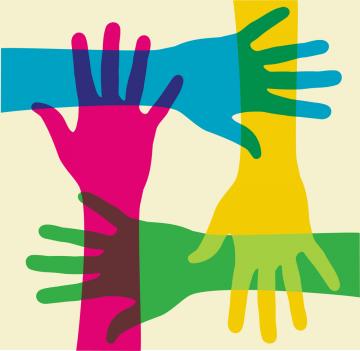
It is no secret that people with “black-sounding names” face discrimination in housing, employment and loan applications in America. Now, there is a study that corroborates those feelings and fears of conscious and subconscious discrimination against ethnic sounding names, according to the Study of Labor, an international research center.
“Discrimination by providers of public services not only has a potentially detrimental impact on the economic and social lives of those affected, but is also illegal,” the study concluded. “While deregulation and globalization may have increased competition in the U.S. economy, thus placing pressure on discriminatory attitudes in the private sector … this has certainly been much less the case for the public sector.”
To test their theory, researchers sent emails asking for basic information to more than 19,000 local public offices around the United States over two non-consecutive weeks. The emails used four names: Jake Mueller, Greg Walsh, DeShawn Jackson, and Tyrone Washington.
- Public offices responded to 72 percent of emails each from Jake and Greg. For DeShawn and Tyrone, who had slightly different levels of response, 68 percent of their emails received replies.
- And while the offices that did respond took roughly the same amount of time and used the same amount of words for everyone, the responses to DeShawn and Tyrone were “less cordial;” 72 percent of the responses to Jake and Greg addressed them by name or included a salutation such as “Hello,” “Dear,” or “Thank [you].” For DeShawn and Tyrone, 66 percent of their responses included such pleasantries, despite having the same amount of words.
“Our results show that emails signed with a distinctively Black name are less likely to receive a reply than identical emails signed with a distinctively White name, thus indicating the presence of discrimination in access to public services,” the report stated.
In rural areas, the difference in response was almost double that of urban areas. The Northeast had the smallest racial gaps in responses, and the Midwest had the largest; but the researchers point out that the Midwest is home to more rural counties than the Northeast, South, and West. The South had the second-lowest incidence of discriminating against DeShawn’s and Tyrone’s emails – the researchers believed this is because more Black people hold public jobs in the South than in other parts of the country.
In terms of professions:
- The responses from sheriff offices showed the widest racial gap, responding to 46 percent of the Black senders, and 53 percent of the White senders.
- School districts had the smallest gap of 3 percent higher for White senders.
- Job centers were the only agencies to respond more to Black senders than White senders.
Roughly half of all the emails were sent to school district employees, and another 25 percent were sent to library workers. The rest were spread among sheriff offices, state and county treasurers, job centers, and county clerks. Sample emails included: “My partner and I would like a marriage license. Could you please tell me what your opening hours are?” and, “I am about to purchase a house. Could you please explain how I can check whether there are unpaid taxes on the house? If there are unpaid taxes, who would be liable for them?”
The report cited a few examples from past research in which Black and low-income Americans access social services and opt into programs at higher rates when they are given more information. So while being stingy and/or unfriendly with public information doesn’t necessarily mean less access to these services, this behavior can seriously affect Black Americans’ ability to take action and make decisions about their lives.
“Making it more difficult for a citizen to obtain information about a service is not merely a nuisance, but can also have an important impact on whether and how the citizen engages with the service,” the researchers wrote. They also pointed out that it’s unlikely that these discriminatory behaviors only happen in responding to emails, without spilling over into the general and unspoken ways of operating a public office.
The study concluded, “Besides being illegal, discrimination by public service providers is particularly startling, since governments could be major players in the effort to eradicate discrimination in American society.”
